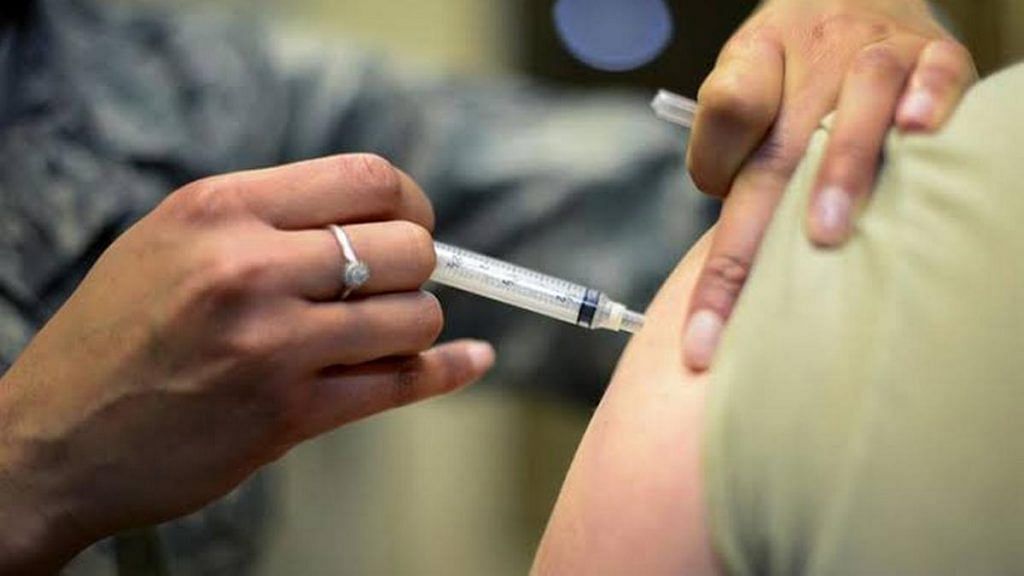Tennis player Novak Djokovic’s recent refusal to accept compulsory vaccination for Covid-19 before playing or travelling has given a boost to global anti-vaxxer groups who have been blamed as anti-science.
While such groups are not active in India, does the legal framework here give the government the power to enforce compulsory vaccination?
Multiple options for the government
Any step towards compulsory vaccination has to be premised on larger public interest. While a person may feel confident about not requiring vaccination because she believes she can fight off the disease, it will not stop her from infecting others who might be from high-risk category. Thus, vaccination in relation to infectious diseases is not simply about choosing what is good for one’s own body and can be construed as an obligation for the sake of public health.
As a legislative measure, Parliament and state legislatures can always enact a specific law incorporating such an obligation. Something similar was done by the British government to deal with the smallpox epidemic through the Compulsory Vaccination Act of 1892.
If the governments want to adopt an executive measure, there are various existing laws that enable them to take such a step. The Epidemic Diseases Act of 1897 empowers state governments to take whatever measures necessary to prevent the outbreak or spread of an epidemic disease. While the exercise of this power is subject to the state government’s satisfaction that the existing laws are not sufficient to deal with the epidemic, it would not be excessive for them to take such a step to deal with the biggest health crisis of the century.
Also read: How coronavirus vaccines can reach the market faster with the right incentives
The National Disaster Management Act of 2005 vests wide powers with the national authority and the national executive committee created under the Act. The range of powers (section 6 and 10) is such that it would be possible for these authorities to mandate compulsory vaccination through appropriate departments in the state governments and the central government. The central government can also enforce such a measure through section 62 of the Act.
Another way the governments can enforce compulsory vaccination is to impose high costs on refusing vaccination without necessarily making it illegal. For example, under the Passport Act of 1967, the government can either refuse the issuance of a passport or revoke an issued passport in relation to any person who refuses to be vaccinated. In relation to immunisation for Covid-19, the government can explain its action on the grounds of maintaining friendly relations with other countries or in the interest of general public. The government can also impose restrictions on accessing public employment or create disqualifications to accessing welfare benefits in the absence of vaccination.
The central government can impose a requirement of vaccination on anybody wishing to enter India. For example, resident-nationals from polio-infected countries like Pakistan, Afghanistan, Nigeria, etc. are not allowed to enter India unless they have been vaccinated. The United States also imposes such requirements in relation to a variety of diseases. So, nothing can stop the government from imposing a requirement of Covid-19 vaccination for anybody wishing to enter India.
Also read: Djokovic right to be anti-vaxxer. Federer or Kohli didn’t just wake up one day as champions
Equal access to vaccines critical
While not fueled by organised anti-vaxxer groups, there have been concerns regarding vaccine hesitancy in India in the last decade, which has seen the reemergence of eradicated diseases like diphtheria. There was also strong resistance to polio vaccination in some parts of India. Much of the community hesitancy towards vaccine in India seems to be primarily based on mistrust towards public healthcare institutions and ignorance regarding the science of vaccination.
There are two legal grounds that can be raised in India if the government makes Covid 19 vaccine compulsory — right to privacy and the right to religious freedom. It needs to be noted that the right to practice religion is subject to any restriction that may be imposed on account of public order, morality and health. Similarly, the Supreme Court in the case of K.S Puttaswamy v Union of India has quite clearly held that the right to privacy is not an absolute right and may be curtailed as long as the procedure is fair, just and reasonable and as long as the proportional restrictions further a legitimate state aim. So, there is sufficient constitutional leeway for the government to claim the power to enforce compulsory vaccination.
However, in order for such a measure to be constitutional, it would be important for the state to facilitate free and accessible vaccination for the marginalised population. Equal access to vaccination is critical and economic disparity and social marginalisation should not be impediments in any mechanism put in place.
The author is a faculty at National Law University Odisha and has recently completed his Fulbright Post-Doctoral Fellowship from Harvard Law School. Views are personal.
